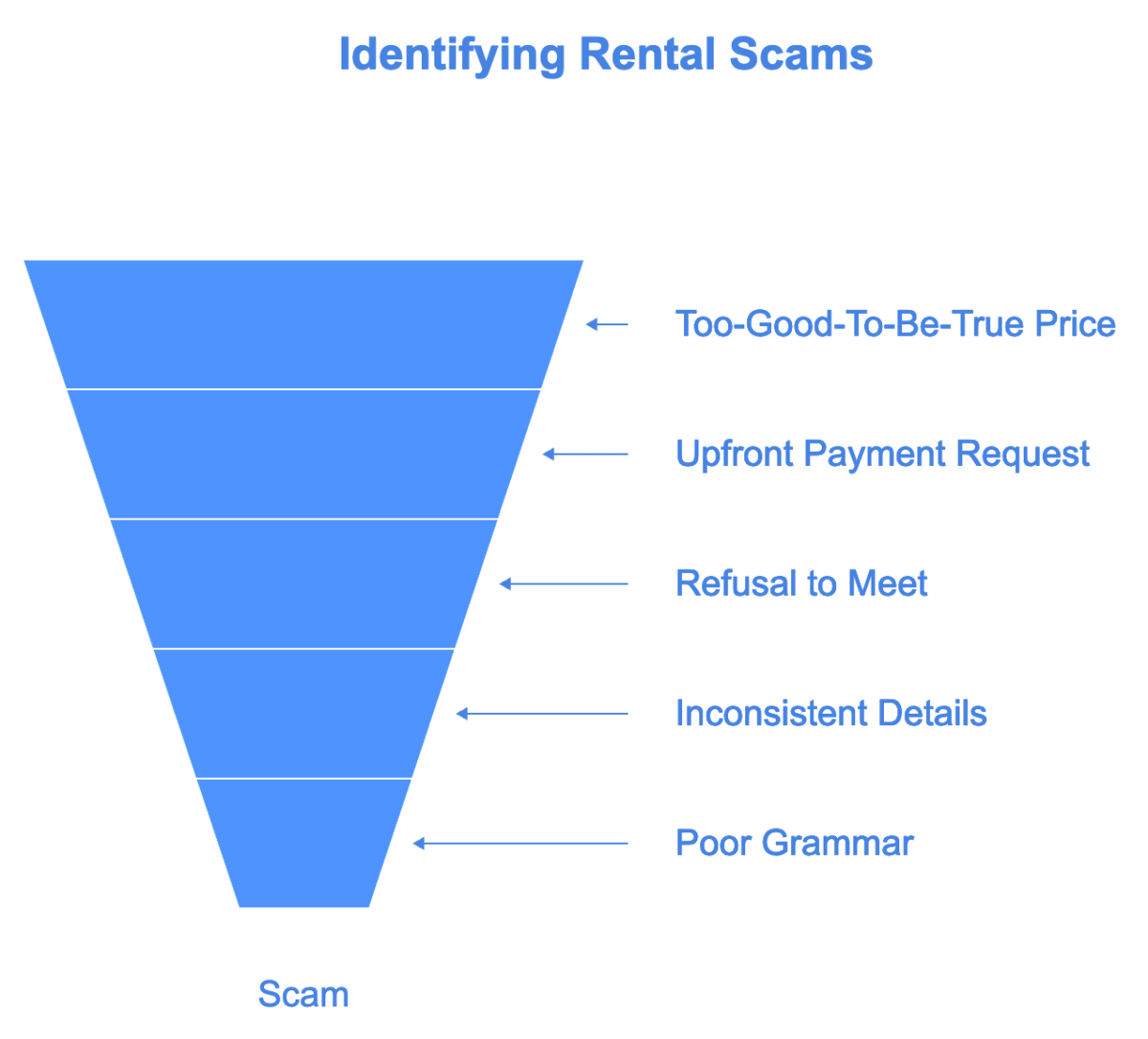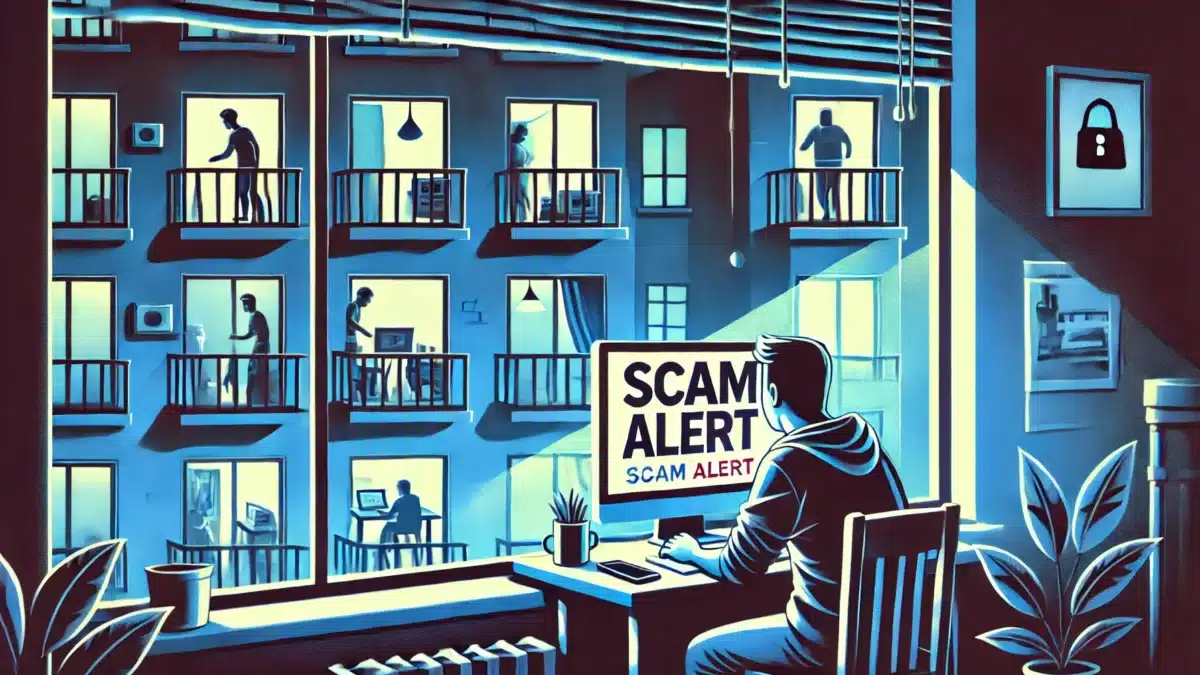
Role of Payment Platforms in Rental Scams
November 14, 2021
Fake Rental Agencies: How to Spot and Avoid Them
February 15, 2022At Section 8 Shield, we’ve been investigating the growing number of Facebook rental scams across the U.S. These scams, which target vulnerable people searching for affordable housing, can be hard to spot if you don’t know the signs. Our research shows that scammers are increasingly using platforms like Facebook Marketplace to exploit unsuspecting renters.
In this article, we’ll break down some of the most common Facebook rental scams, how they work, how you can avoid falling victim, and what to do if you’ve been scammed.
Common Facebook Rental Scams
- Fake Listings at Bargain Prices
Scammers often post fake listings of houses or apartments at prices significantly lower than market rates. These properties may look perfect—beautiful photos, great locations, and all for a fraction of what you’d expect to pay. The goal is to lure you in with the promise of a great deal. - The “Remote Landlord” Trick
This scam involves a “landlord” claiming they can’t show you the property in person because they are out of town, overseas, or otherwise unavailable. They’ll pressure you to send a deposit via wire transfer or apps like Zelle, Venmo, or Cash App, promising to send the keys once the payment is made. Spoiler alert: the keys never arrive. - Duplicate Listings
Scammers copy legitimate listings from other websites and post them on Facebook with their own contact information. They pose as the landlord or property manager, convincing you to send money for deposits or rent, but the property isn’t actually theirs to rent. - Rent-to-Own Scams
In this scheme, scammers promise rent-to-own options that seem too good to be true. They ask for upfront fees or higher deposits, promising that you’ll eventually own the home. However, these homes often don’t exist, or the scammer has no connection to the property. - Fake Section 8 Listings
Scammers know that many people are looking for affordable Section 8 housing. They create fake listings, often asking for personal information and upfront fees, claiming to “help” with applications or secure housing quickly. These scams prey on people’s desperation for affordable living options.
How to Spot a Facebook Rental Scam

While these scams can be sophisticated, there are red flags you can watch out for to protect yourself:
- The price seems too good to be true: If a listing offers an unusually low rent for a large home or prime location, be suspicious.
- Requests for money upfront: Scammers often ask for deposits, first month’s rent, or application fees before you’ve even seen the property.
- They refuse to meet in person: Legitimate landlords will want to meet you, show the property, and discuss the terms in person.
- Vague or inconsistent details: If the details in the listing change or the person you’re communicating with seem unsure about basic property facts, it’s a red flag.
- Poor grammar or odd phrasing: Many scam listings are riddled with spelling mistakes, odd phrasing, or generic descriptions.
How to Avoid Facebook Rental Scams
- Verify Listings with a Quick Search
Use Google or another search engine to check if the photos or text from the listing appear elsewhere. Scammers often reuse images and copy listings from legitimate sites. - Never Send Money Before Seeing the Property
Insist on seeing the property in person or through a legitimate property management service. Avoid wire transfers or payment through apps like Zelle, Cash App, or Venmo—these methods are often irreversible once the scammer gets the money. - Check the Property Ownership
Use county records or online property databases to verify that the person you’re dealing with actually owns the property. You can also ask for a property management license if the listing is through a company. - Trust Your Instincts
If something feels off, trust your gut. Scammers often rely on your urgency or desire to secure a great deal, hoping you’ll ignore the warning signs. - Verify with Trusted Platforms
Before committing to a rental, it’s always a good idea to cross-check listings on trusted platforms like Zillow, Craigslist, or Section 8 Shield. We provide up-to-date information on potential scams and can help verify the legitimacy of a rental listing.
What to Do If You’ve Been Scammed
If you’ve already fallen victim to a Facebook rental scam, here are some steps you can take:
- Report the Scam to Facebook: Go to the listing or the profile of the scammer and report it directly to Facebook. They’ll investigate and possibly remove the scammer’s profile.
- File a Police Report: This is especially important if you’ve lost money. Your local police may not be able to recover the funds, but they can create a record of the crime, which might help in future investigations.
- Contact Your Bank: If you’ve sent money via wire transfer or a payment app, notify your bank or the payment service immediately. While recovery isn’t always possible, some services have fraud protection and may be able to reverse the charge.
- Submit a Complaint to the Federal Trade Commission (FTC): The FTC handles reports of fraud and scams. Filing a report helps them track and shut down widespread fraud operations. You can do this at consumer.ftc.gov.
- Use Section 8 Shield’s Scam Reporting Tool: You can also report scams directly through Section 8 Shield. We maintain a database of known scams and help spread awareness to prevent others from falling victim.

How Scammers Keep Evolving
Our investigations show that scammers are constantly updating their tactics. New fake listings appear regularly, and scammers are becoming more skilled at impersonating legitimate landlords and property managers. Even reviews and testimonials on Facebook can be faked, making it even more critical to be vigilant.
Platforms like Facebook Marketplace, while convenient, don’t have robust safeguards to prevent scams from being posted. Unlike traditional rental websites, Facebook lacks some of the verification processes that could catch these scams before they reach potential renters.
Conclusion
Facebook rental scams are a real and growing problem across the U.S., but you don’t have to fall victim. By staying informed, verifying listings, and using trusted resources like Section 8 Shield, you can protect yourself and your loved ones from housing fraud.
If you’re ever in doubt about a rental listing or feel something isn’t right, take a step back and investigate further. It’s better to miss out on a great deal than to lose money to a scammer. Always check with reliable resources like our website before making any decisions. Stay safe, stay smart, and let Section 8 Shield be your guide in the hunt for affordable, scam-free housing.




